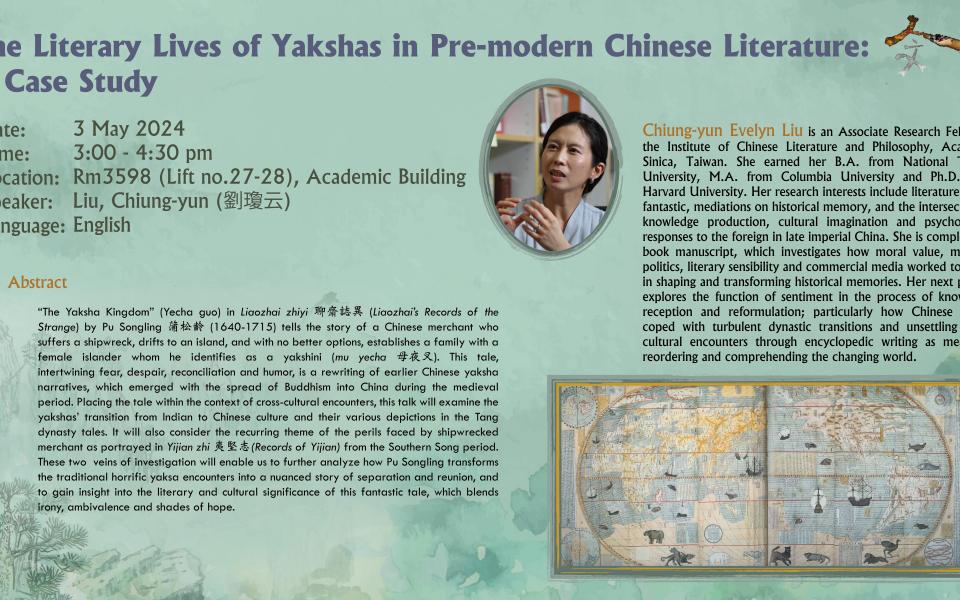Abstract:
“The Yaksha Kingdom” (Yecha guo) in Liaozhai zhiyi 聊齋誌異 (Liaozhai’s Records of the Strange) by Pu Songling 蒲松齡 (1640-1715) tells the story of a Chinese merchant who suffers a shipwreck, drifts to an island, and with no better options, establishes a family with a female islander whom he identifies as a yakshini (mu yecha 母夜叉). This tale, intertwining fear, despair, reconciliation and humor, is a rewriting of earlier Chinese yaksha narratives, which emerged with the spread of Buddhism into China during the medieval period. Placing the tale within the context of cross-cultural encounters, this talk will examine the yakshas’ transition from Indian to Chinese culture and their various depictions in the Tang dynasty tales. It will also consider the recurring theme of the perils faced by shipwrecked merchant as portrayed in Yijian zhi 夷堅志 (Records of Yijian) from the Southern Song period. These two veins of investigation will enable us to further analyze how Pu Songling transforms the traditional horrific yaksha encounters into a nuanced story of separation and reunion, and to gain insight into the literary and cultural significance of this fantastic tale, which blends irony, ambivalence and shades of hope.
Biography:
Chiung-yun Evelyn LIU is an Associate Research Fellow at the Institute of Chinese Literature and Philosophy, Academia Sinica, Taiwan. She earned her B.A. from National Taiwan University, M.A. from Columbia University and Ph.D. from Harvard University. Her research interests include literature of the fantastic, mediations on historical memory, and the intersection of knowledge production, cultural imagination and psychological responses to the foreign in late imperial China. She is completing a book manuscript, which investigates how moral value, memory politics, literary sensibility and commercial media worked together in shaping and transforming historical memories. Her next project explores the function of sentiment in the process of knowledge reception and reformulation; particularly how Chinese literati coped with turbulent dynastic transitions and unsettling cross-cultural encounters through encyclopedic writing as means of reordering and comprehending the changing world.
